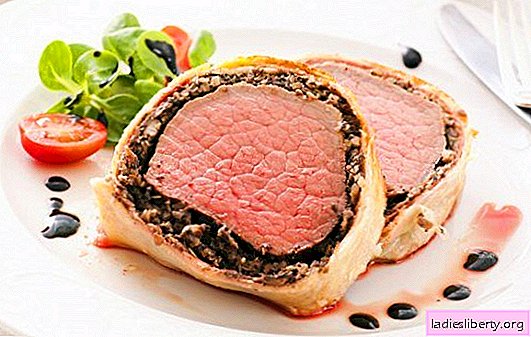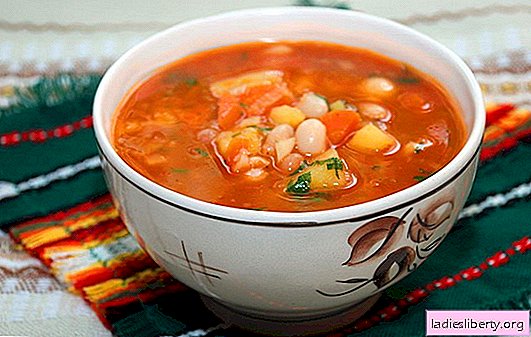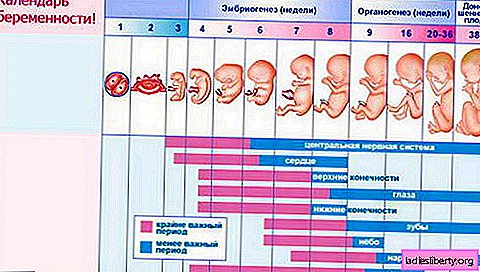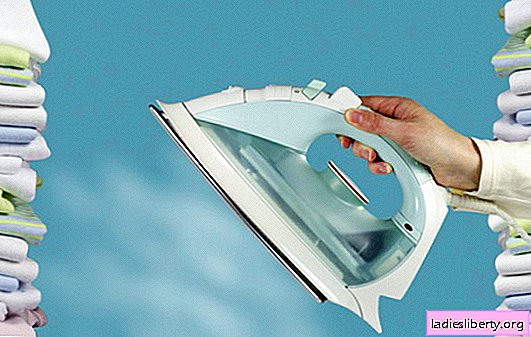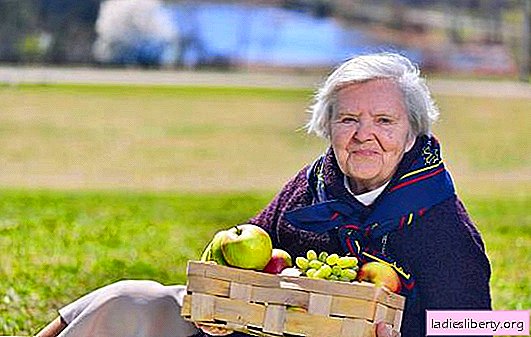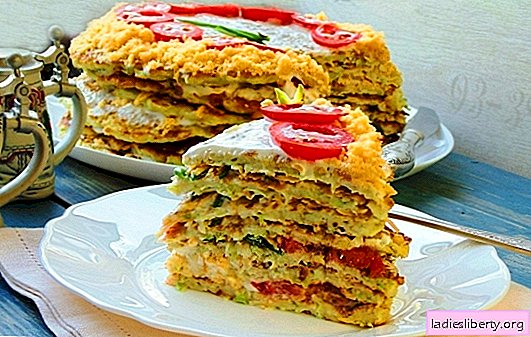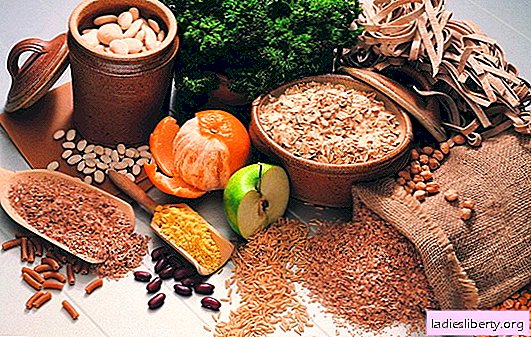
Nowadays, a lean diet is understood as a diet devoid of animal food.
Doctors do not advise to adhere to this diet for a long time, since with a lean diet, the body will not receive a complete set of nutrients.
As a rule, a person without harm can refuse products of animal origin for two months.
The lean diet, which will be discussed below, has practically nothing to do with church fasting, and, thanks to plant and fiber foods, it only cleanses the body and removes extra pounds.
As a rule, lean diet is calculated for a week, and after a short break it can be repeated.
The maximum allowable period is 7 weeks. Even if you fail to lose much weight, the benefits of such a diet are guaranteed.
What is useful lean diet
The benefits of periodic abstinence from animal products are obvious. Disturbances in the work of the gastrointestinal tract have long been known for their detrimental effect on the entire human body.
Proper nutrition is quite capable of defeating many problems with the digestive tract. Here come to the aid products of plant origin - cereals, fruits, vegetables, berries and sea plants.
The greatest effect for weight loss is observed in "meat-eaters", for which two meat dishes a day is the norm.
With a complete rejection of animal food, a person who is accustomed to consume such dishes loses weight very quickly - he simply eats much less. In addition, intestinal motility improves, the feeling of heaviness in the abdomen disappears.
The high content of pectin and fiber in most lean products has a direct effect on the body:
• regulates metabolism;
• normalizes the urinary system;
• reduces the level of "bad" cholesterol in the blood;
• stabilizes the gastrointestinal tract;
• cleanses the body of toxic and other harmful substances (pesticides, nitrates, radionuclides, etc.);
• improves skin, nails and hair.
No wonder the church supported the observance of fasting by parishioners - each of the many days of fasting (Rozhdestvensky, Velikiy, Uspensky and Petrov) favorably affects various systems and organs of a person, supporting them during the most dangerous times of the year. Many people prefer to stick to fasting, considering it optimal for restoring mental and physical health. If you are not ready to deprive yourself of good nutrition for months, but are only aimed at dropping a few kilos, then the recommendations below will definitely come in handy.
Lenten diet: what to eat
Unlike church fasting, a fasting diet includes vegetable fats, sweetened foods, salt, and seasonings. Food is especially welcome several times (up to 4) per day.
Fruits and vegetables
These products should form the basis of a lean diet. Especially in winter and spring time. Beets, carrots and other root vegetables, as well as pumpkin, cabbage, onions, garlic, apples, - these products must be present in the diet, both fresh and baked and boiled. Always remember broccoli: it gives the dish not only an appetizing color, but also a taste, besides, broccoli is low-calorie.
Please note: heat treatment of vegetables should be minimized. It is better to put the vegetables in boiling water and monitor their condition, to prevent digestion.
The most nutritious vegetables and fruits are banana and potatoes, in particular, one banana can replace a plate of semolina porridge. But you should not do this constantly, because diversity in the diet is the key to recovery.
Homemade canned salads, juices, caviar, and other preparations for the winter will be useful.
Healthy cereals
Cooked on the water, a variety of cereals in the diet act on the work of the intestine in a "miraculous" way.
With regular use of cereals, constipation, colic and flatulence pass. And even “no” wheat porridge will be tasty if it is supplemented with a mushroom cutlet and gravy. And rice porridge with raisins on the water is an amazingly delicious dessert! Experiments can be carried out with buckwheat, and oatmeal, and semolina casserole deserves to remain in the daily diet forever!
The advantage of cereals is also in their low price with high energy potential and an abundance of vitamins and trace elements:
• buckwheat contains vitamins of groups B and A, iron, cobalt, potassium and calcium, as well as rutin, which favorably affects the walls of blood vessels;
• oatmeal is full of vitamin E and selenium, the main antioxidants, and also rich in fiber and gluten, which helps with gastritis and even ulcer;
• barley - "porridge of beauties", as it provokes the production of collagen, contains a large amount of phosphorus;
• rice is famous for hypoallergenicity, an abundance of starch and complex carbohydrates, while rice porridge is one of the lowest calorie;
• millet porridge - a product that doctors strongly recommend to people with intense physical activity, it is believed that it gives strength. In addition, millet is rich in silicon, copper, as well as substances that bind heavy metal ions and remove toxins.
Meat substitutes in the lean diet
Many people doubt the safety of a diet without animal products due to the fact that there is supposedly no protein in it. But everything is not so scary and categorical.
Just a few plant-based protein-containing foods will make the diet complete. Soy products, legumes, mushroom dishes are an excellent substitute for meat.
Soybean is especially different - properly cooked soy goulash often even surpasses meat in taste, and does not yield to it in nutritional value.
Lean diet exceptions
Let's clarify: it is not only about meat, poultry and fish - under the categorical prohibition also eggs, milk, butter, sour cream, kefir, cottage cheese, yogurt, cheese, and other dairy products. The ban applies to dishes in which this ingredient is added - sauces such as mayonnaise, pastry, etc. Fish and seafood are not allowed.
It is advisable to reduce the amount of vegetable oil to 20 grams per day maximum. Optimal will be the full variety of vegetable oils, use not only sunflower, but coconut, olive, cocoa butter, sesame, linseed, pumpkin and peanut.
Despite the fact that natural vegetable oil not only improves the taste of dishes, but also is good for health, vegetable oil is an extremely high-calorie and nutritious product.
At 100 grams it can be up to 900 kcal, so it is better to fry without oil at all, or with a small amount of it (at high temperatures useful substances in vegetable oils are destroyed), and season salads with lemon juice, vinegar, or sprinkle with spices.
Any sugar-containing foods and dishes are not combined with fasting. You can not drink and alcoholic beverages.
An example of a 7-day fasting diet with a fasting day
First day
Breakfast: 100 grams of millet, oatmeal or rice porridge with pumpkin, tea.
Lunch: lean vegetable soup or borsch with cabbage-carrot salad, seasoned with lemon juice and / or sunflower oil.
Snack: fruit jelly or dried fruit compote, banana or baked potato.
Dinner: favorite steamed root vegetables with vegetable oil, dried fruits or fruit salad.
Second day
Breakfast: mashed potatoes with vegetable oil and mushrooms (baked potatoes, or potato pancakes), sandwich with vegetable caviar, tea or drink with chicory.
Lunch: mushroom soup with celery, salad with cabbage, cucumbers or tomatoes.
Snack: vegetable stew or pumpkin cream soup.
Dinner: rice with honey and apples, or pearl barley porridge with mushrooms, a handful of nuts or candied fruits.
The third day
Breakfast: vegetable pancakes with potatoes and / or zucchini, or salad (for example, vinaigrette), coffee drink or tea.
Lunch: cabbage or onion soup (you can add mushrooms), a salad of raw carrots and apples, a slice of pita bread.
Snack: zrazy from potatoes with mushrooms, any canned vegetable salad, berry jelly.
Dinner: buckwheat porridge, baked pumpkin, jam with tea.
Fourth day
Breakfast: lenten pancakes or pancakes with jam, or oatmeal kissel with black bread croutons, hot drink without caffeine.
Lunch: soy goulash with pasta and ketchup, you can add a baked pie.
Snack: semolina casserole with raisins or fruit salad.
Dinner: vegetable stew with potatoes, zucchini, onions and sweet pepper, a spoonful of honey and tea.
Fifth day
The most difficult both morally and physically. It is necessary to endure all day without eating anything. It is necessary to drink as much as possible. If you can do only water, then this is ideal. Acceptable juices, fruit drinks, fruit drinks, tea.
Sixth day
Breakfast: light - better liquid oatmeal or semolina on the water with the addition of dried fruits and a coffee drink.
Lunch: stewed cabbage, pumpkin soup and fruit salad, tea.
Lunch: two baked apples with cinnamon or stewed beans, fruit jelly.
Dinner: boiled or baked potatoes, pickled mushrooms, nuts and tea.
Seventh day
Breakfast: semolina or rice porridge on the water with honey or jam, coffee drink.
Dinner: potato soup with onions and celery, carrot salad and tea.
Snack: pumpkin porridge on the water with raisins, jelly.
Dinner: buckwheat cutlets with mushrooms, cabbage salad and candied tea.
The key to the success of this diet is not to overeat and do not eat at night. The last meal should not be later than 19:00. Even the most simple, lean dishes will not be useful if you eat them in unlimited quantities.
Having compiled an approximate balanced menu of a lean diet for a week according to our advice, and starting to stick to it, listen to your body. If you experience an unquenchable feeling of hunger, headaches or dizziness, then it is better to suspend the experiments. Athletes and people with high physical activity are generally not recommended to refuse animal protein.
How to "get out" of the diet
The pledge of the effectiveness and usefulness of a lean diet - in a smooth transition to a normal diet after it. It is necessary to add animal products little by little, starting with cheese or adding butter to porridge, one egg per day, and first cut the meat into small pieces.
If we ignore these recommendations and proceed immediately to meat and fish smoked meat and fatty sweets, then you can make a strong "blow" to the liver, stomach and intestines. As a result, the lost kilograms will be gained, and it will take more than one day to heal.
Before deciding to follow a diet, consult a doctor, as there may be contraindications:
• the postoperative period;
• diabetes;
• an ulcer;
• gastritis;
• colitis;
• pregnancy and lactation;
• exacerbations of chronic diseases.
In the absence of contraindications and a fully developed diet without overeating on a lean diet, you can lose weight up to 7 kilograms per week. At the same time well-being significantly improved.

